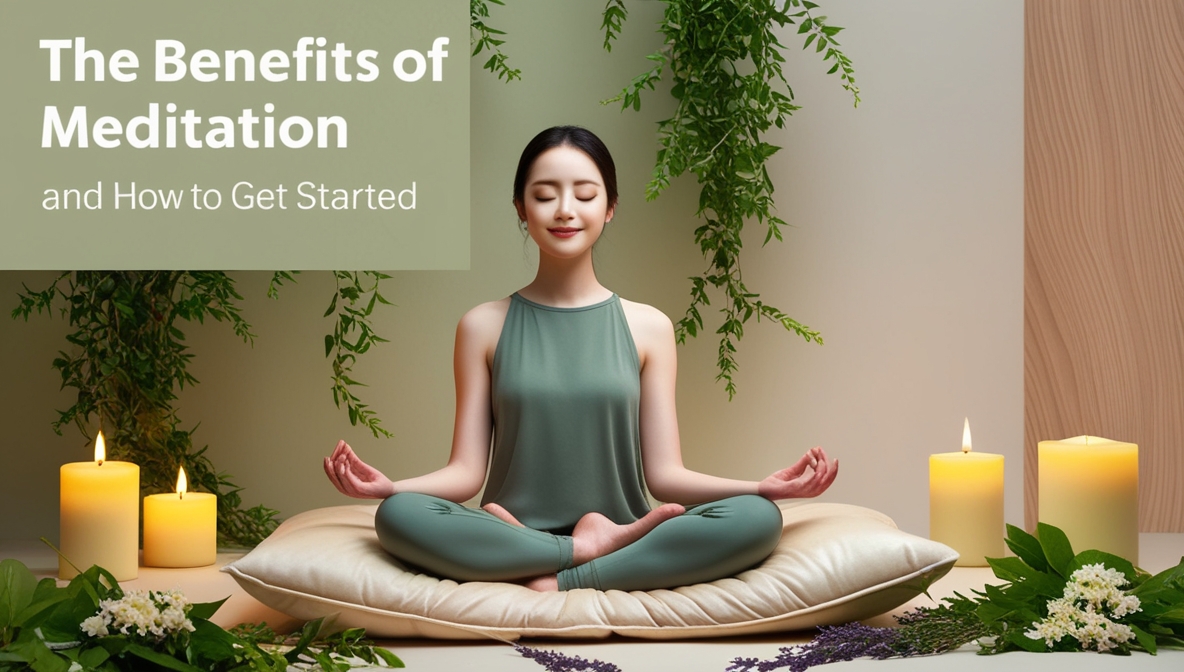Meditation is a practice that has been embraced for thousands of years for its profound impact on mental, emotional, and physical well-being. For those seeking to find balance and learn how to organize your life, meditation offers a respite from the chaos and a pathway to greater clarity and calm. Here’s a look at the benefits of meditation and some simple steps to help you get started.
Benefits of Meditation
1. Reduces Stress and Anxiety
Meditation helps activate the body’s relaxation response, reducing the production of stress hormones like cortisol. Regular practice can lower anxiety levels and promote a sense of calm.
2. Enhances Emotional Well-Being
Meditation encourages mindfulness and self-awareness, leading to improved emotional regulation. It can help you develop a more positive outlook and increase overall happiness.
3. Improves Focus and Concentration
Regular meditation strengthens the brain’s ability to focus and concentrate. It helps improve attention span and cognitive function by enhancing the brain’s ability to process and retain information.
4. Promotes Better Sleep
Meditation can aid in falling asleep faster and improving sleep quality by relaxing the mind and body before bedtime. It’s an effective way to combat insomnia and achieve more restful sleep.
5. Increases Self-Awareness
Through meditation, you gain deeper insight into your thoughts, emotions, and behaviors. This increased self-awareness can lead to better self-understanding and personal growth.
6. Enhances Emotional Resilience
Meditation helps build emotional resilience by fostering a greater sense of control over your responses to challenging situations. It supports a more balanced and thoughtful approach to handling stress.
7. Supports Physical Health
Regular meditation has been linked to various physical health benefits, including lower blood pressure, reduced symptoms of chronic pain, and improved immune system function.
How to Get Started with Meditation
1. Choose a Quiet Space
Find a quiet, comfortable place where you won’t be disturbed. This space should be free of distractions and conducive to relaxation.
2. Start with Short Sessions
Begin with short meditation sessions, such as 5-10 minutes. As you become more comfortable, gradually increase the duration.
3. Get Comfortable
Sit in a comfortable position, either on a chair or the floor, with your back straight. You can use a cushion or chair for support if needed.
4. Focus on Your Breath
Close your eyes and bring your attention to your breath. Breathe naturally, and focus on the sensation of the breath entering and leaving your body. If your mind wanders, gently bring your focus back to your breath.
5. Use Guided Meditations
If you’re new to meditation, guided meditations can be helpful. Many apps and online resources offer guided sessions that lead you through the meditation process.
6. Experiment with Different Techniques
Explore various meditation techniques to find what works best for you. Some common techniques include mindfulness meditation, loving-kindness meditation, and body scan meditation.
7. Practice Regularly
Consistency is key to reaping the benefits of meditation. Aim to meditate daily, even if it’s just for a few minutes. Over time, you’ll notice the positive impact on your mental and emotional well-being.
8. Be Patient and Non-Judgmental
Meditation is a skill that develops over time. Be patient with yourself and approach your practice with a non-judgmental attitude. It’s normal for your mind to wander; gently guide it back to your focus.
9. Incorporate Meditation into Your Routine
Integrate meditation into your daily routine by setting aside a specific time each day. Whether it’s in the morning, during lunch, or before bed, find a time that works best for you.
10. Join a Meditation Group
Consider joining a local or online meditation group for additional support and motivation. Sharing your experience with others can enhance your practice and provide valuable insights.
Conclusion
Meditation offers a wide range of benefits for both mental and physical health. By incorporating meditation into your daily routine, you can experience reduced stress, enhanced emotional well-being, improved focus, and overall better quality of life. Start with small, manageable sessions and explore different techniques to find what suits you best. With consistent practice, meditation can become a powerful tool for achieving inner peace and balance.
